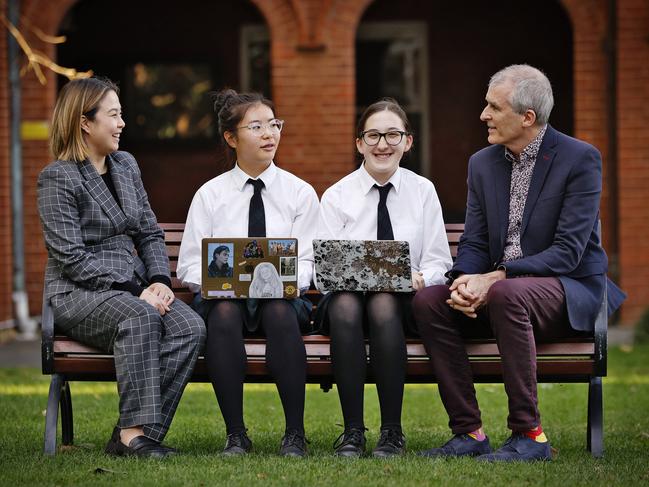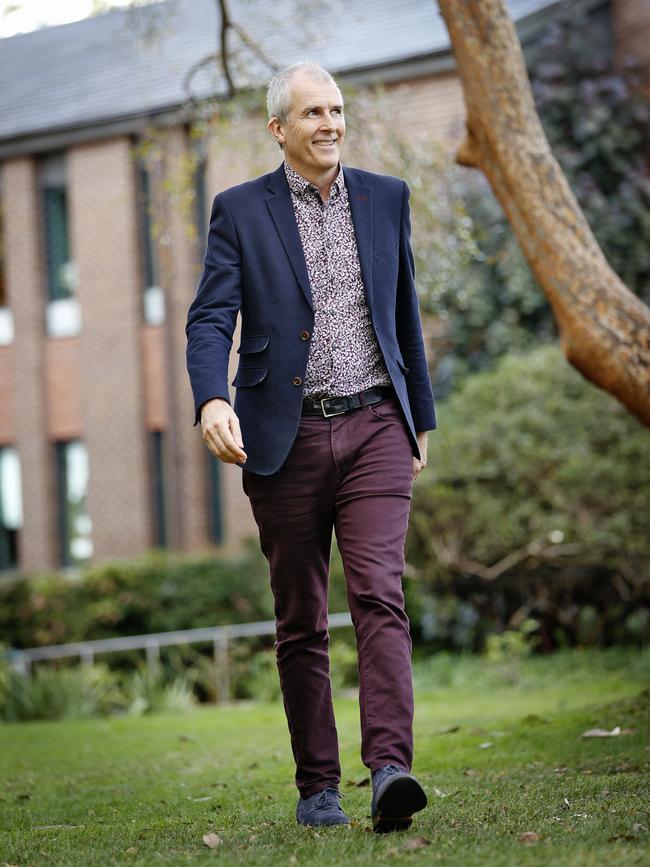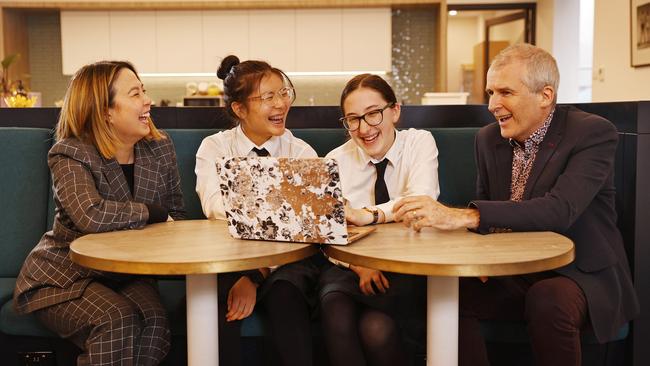Public schools fighting ‘losing battle’ with AI ban, private school teachers say
Teachers at one of Sydney’s leading private schools are calling on their public sector counterparts to embrace AI and get their heads out of the sand, or risk leaving their students behind.
Education
Don't miss out on the headlines from Education. Followed categories will be added to My News.
Teachers at one of Sydney’s most exclusive private schools are calling on their public sector counterparts to embrace artificial intelligence and get their heads out of the sand, or risk leaving their students behind.
While the independent and Catholic schools are figuring out how and when to use AI on their own terms, the NSW Department of Education banned tools like ChatGPT for public school students in January with no immediate intention to bring down the firewall, citing ethical and privacy concerns.
But prohibiting school students from using generative AI in the classroom is “a losing battle” says Pymble Ladies College’s Director of Innovative Technologies Anthony England.
“You can’t really block AI, it’s in everything – it’s in Canva, it’s in Microsoft search, it’s going to be in Google search … it’s not just ChatGPT,” Mr England said.
“Blocking [those tools] is just saying ‘don’t be aware of the problem, but be affected by the problem’.”

Schools including Lithgow High School and Plumpton High School have organised ‘Day of AI’ events to introduce students to the emerging technology, but even at the most proactive public schools access to those tools is restricted only to staff.
At PLC however, students using AI is actively encouraged. The girls create study plans in ChatGPT, analyse generated essays for inaccuracies and bias, and use chatbots as “study buddies”.
Date science teacher Kim Maksimovic said AI is “a tool, not a temptation” for her students, who learn how to use voice synthesisers, image creators, music generators and more.
“We talk about values in the classroom a lot and we say, well, if you’re going to use this to cheat, then … it’s not ethical and it’s not actually going to benefit you in the long term anyway. So you’re letting yourself down,” she explained.
Year 9 students Izzy Attard and Caitlin Kim have both discovered through their studies ways to use AI to breeze through busywork.
“My first impression of ChatGPT was as something you can use to cheat … then I realised it can actually be used as a tool to help you rather than just to cheat,” Ms Attard said.

“You can use it to plan a study schedule for an assessment, or help with an overview of what you’re going to write rather than just using it to write your whole essay for you.”
But some of their teachers, as is the case in almost every school, are struggling to keep up with their students’ tech savvy.
“Whenever there’s an assessment task, no one ever mentions [AI],” Ms Kim said.
“There’s no guidelines on whether you can use it or you can’t, or when you should. There’s no mention of it anywhere.”
“I think teachers try to ignore the fact that most of us have ChatGPT accounts,” Ms Attard added.
Mr England said teachers tend to fall into one of five different categories: the ‘ostrich’ sticks their head in the sand and ignores AI, the ‘whack a mole’ seeks to destroy what they see as a threat to education, the ‘turtle’ takes on a few tools but conducts business as usual, the ‘chameleon’ adapts dangerously quickly and lacks wisdom, while the ‘eagle’ sees the big picture of how AI will change the classroom forever.

“I think this is a chance to push for more student autonomy,” he said.
“If they’re going to co-create with AI, they’re no longer being judged, but they are doing the judging. That’s something in life we want all our students to grow in.”
Representatives from across sectors and jurisdictions have formed an AI taskforce working on a nationally consistent framework for schools, and a parliamentary inquiry is accepting submissions until mid-July.
National Catholic Education Commission executive director Jacinta Collins said her organisation would make a submission addressing “the challenges of AI including privacy, equity, misuse and misinformation, as well as the opportunities to support learning and teaching through the curriculum, student engagement, assessment and automation”.

“Catholic education has not taken a blanket approach to ban the use of ChatGPT in schools,” Ms Collins said.
Daniel French, who leads the NSW Department of Education’s AI working group, said public school teachers staff receive regularly updated advice around AI policy and development, but the blanket ban for students will remain in place – for now.
“We have the duty of care of all of our students at the heart of any decisions around the way that we use AI. So for that reason that we’ve still got restrictions in place for things like ChatGPT, for instance,” Mr French said.
“We need to make sure that the use of AI is inclusive and accessible, and that the professional learning related to that is able to address the needs of all teachers no matter what stage in their career they might be at.
“It’s really important that we proportionately take the time to get the framework right, but also consult with experts as well as teachers, education representative bodies. It’s an evolving space, but obviously, we need to make sure that the thorough work is in place.”





